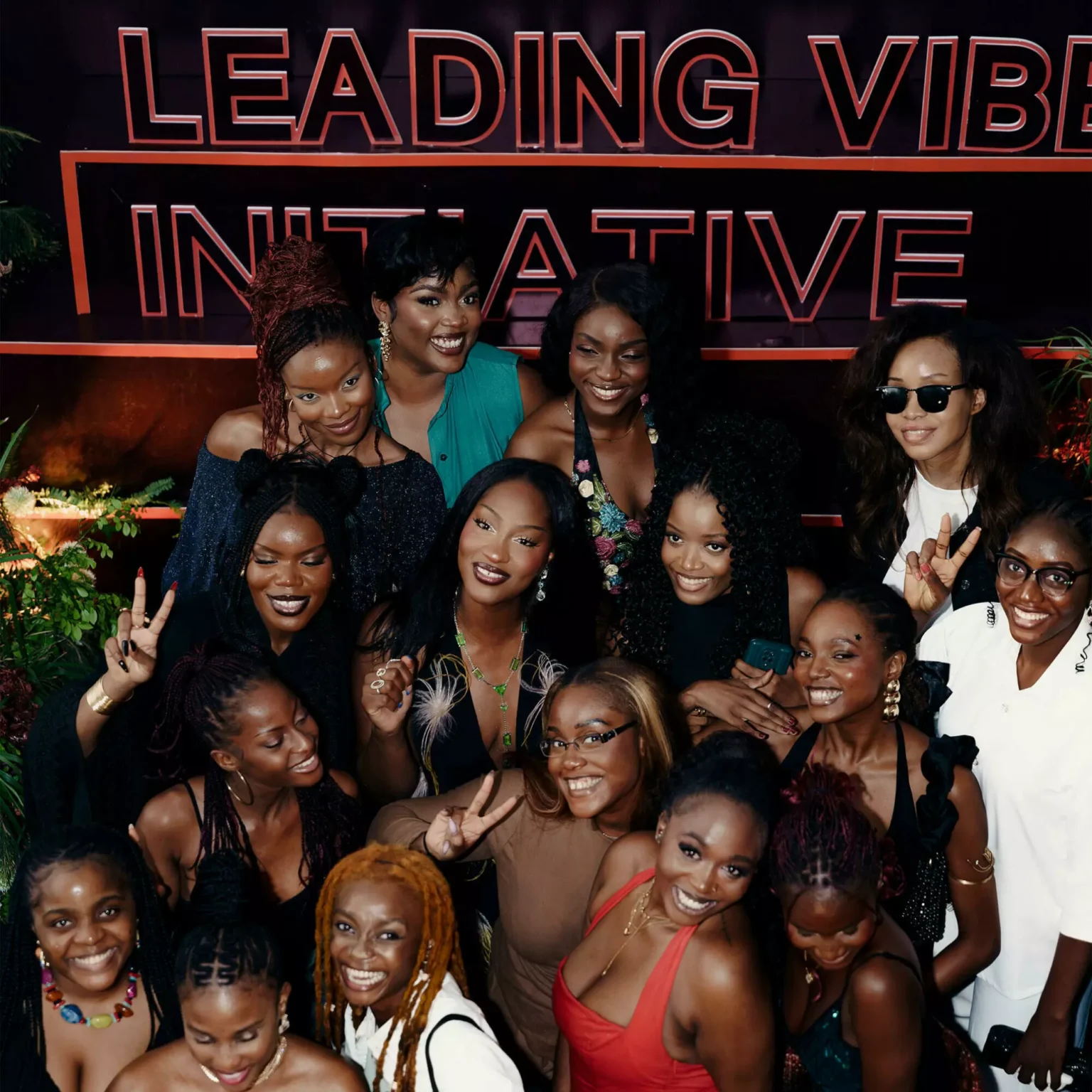In July, we reported on Tems’ Leading Vibe Initiative, a mentorship programme designed to empower and connect emerging women artists with the support and community they need to grow. The initiative, which is backed with training and production tools from Native Instruments is now the subject of a short film, 72 Hours in Lagos , which tracks the lives of three producers — Saszy Afroshii, TinyBraz and Gbots — as they live inside the music in one of the most chaotic yet beautiful places on earth.
Seated in her studio, with laptops and studio monitors and controllers filling the space behind her, Saszy Afroshii, who has produced for the artists like Fave, Wizkid and Tiwa Savage, says that it’s this hustle and bustle that she enjoys about the city. “I could be driving, or I could be walking down the street, [and be] inspired. Maybe there’s a sound, or a chant of kids playing in the street that could inspire you to make something,” she says.
The film’s visual language speaks to a city constantly in flux, reaching for one thing or the other, hiding bits and pieces of itself in plain view. For Saszy Afroshii, inspiration exists in the very pulse of the city. “Everyone wants to be number one. Everybody wants to be the boss,” she chuckles.
The film takes us behind the beat, down to the nitty-gritties of what makes the music thump. It positions Lagos as the mother force from which all manner of inspiration comes. The music is fuller, because it emerges from the alleyways and the highways that connect people and opportunities.
For Tems, the initiative is her way of opening larger doors of opportunity, and building a thriving community of fellow music creators. “Lagos is a vibrant city that creates a drive in you, and a different type of motivation which I have. It’s very authentic and unique to itself,” she says in the film.
“The Leading Vibe Initiative is meant to create a space for women in music in all categories, in all aspects, and to [support] them in any which way for the goal to redefine how women see themselves, and how other people see women in music.” Learning to produce, she adds, helped her to solidify her sound. “The music became more genuine and more true to me, and more distinctive.”
Behind the Beat: Stories of TinyBraz and Gbots
Producer and deejay Purple Halo, who also sings under the moniker TinyBraz, shares the story of how she started out with production on the free, cloud-based music creation platform, Bandlab. “I downloaded [it] on my phone and made a beat. My then-boyfriend listened to it and he was like, you can actually do this.”
According to her, the core message of the initiative is authenticity. “For me, that really cut deep because […] I am kind of androgynous. The label I was in really wanted me to be on the girly side and, to be honest, it wasn’t what I was feeling. I just wanted to find myself again because [people] were basically imposing their idea of what they think a female artist should be,” she says. She calls her studio “makeshift” — it’s literally her laptop on a small chair — but, as she puts it, “you can make a hit anywhere!”
Gbots, who also plays the saxophone, learnt music production with her friend during the COVID-19 lockdown. “I just fell in love with it, and from there, I would always look for ways to hone my skills,” says the producer, who has worked with artists like CKay and Olamide.
72 Hours in Lagos shows how these women draw on the city’s noise and motion to craft distinct sounds. Tems’ initiative aims to widen the pathways that allow those sounds — and the people who make them — to be seen, heard and sustained.

